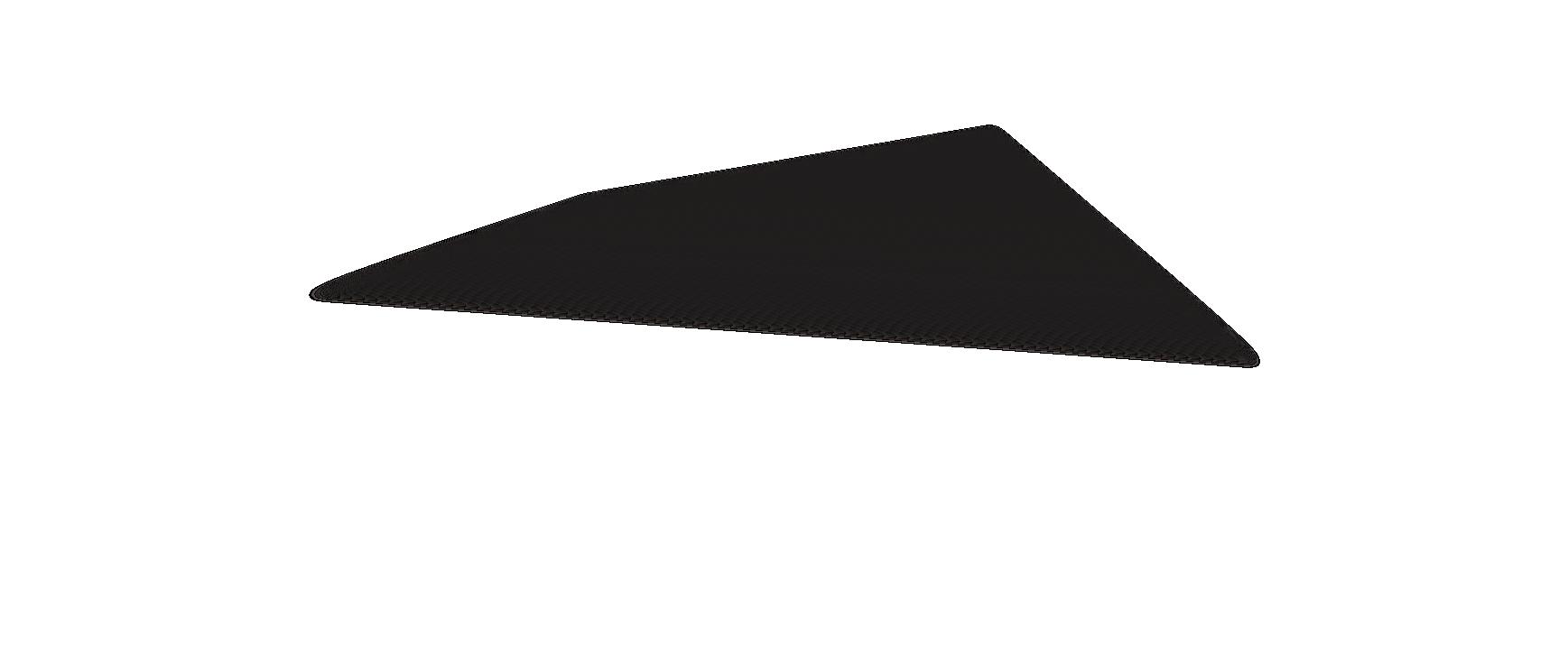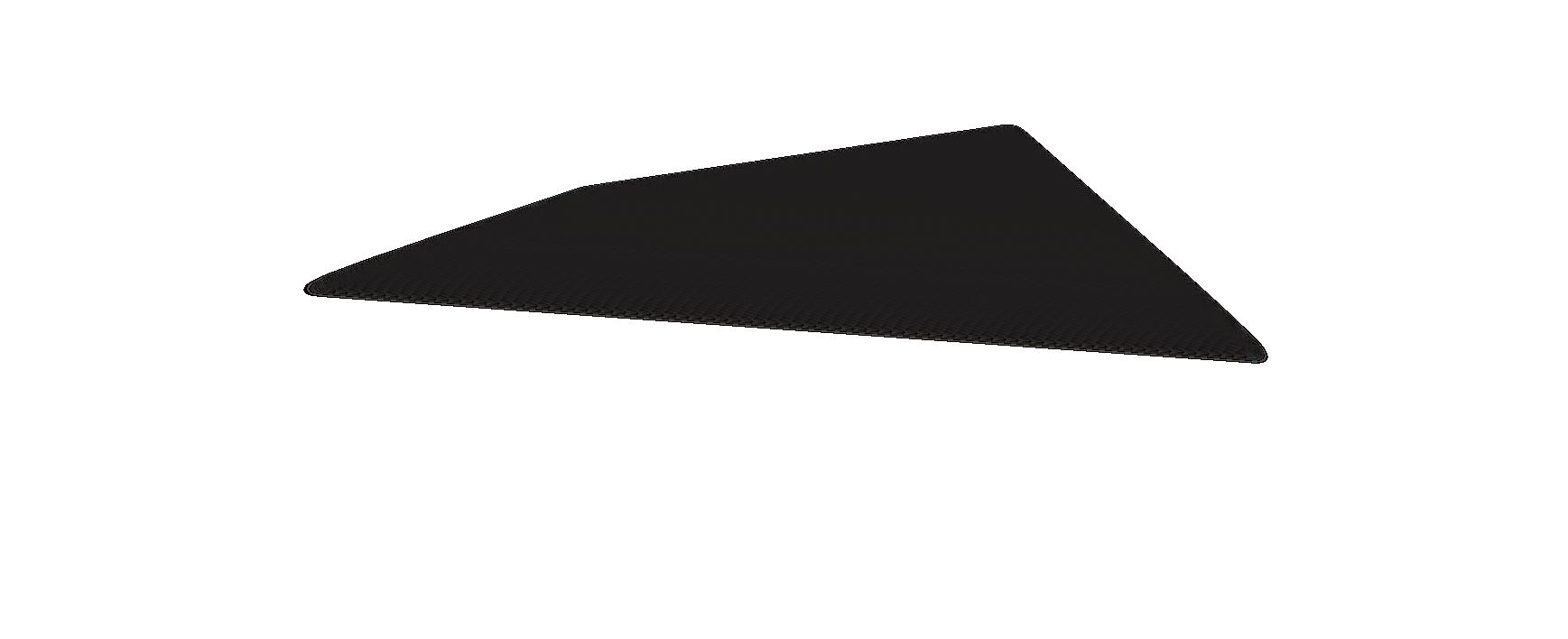
HIDDEN GEMS & NEW BEGINNINGS: A CLARINET & PIANO EVENING
WESLEY FERREIRA, CLARINET
JOOYEON CHANG, PIANO
COPPER FERREIRA, BASS CLARINET
FEBRUARY 19, 2025, 7:30 P.M. | ORGAN RECITAL HALL
Tzigane (2005)
Patrick Cardy (1953 - 2005)
Song and Dance, Op. 9 (1987)
I. Song
II. Dance
Sonata for Clarinet in A and Piano, Op. 138 (2021)
I. Allegro
II. Lento, motto libero
III. Allegro di molto
Sonata No. 1 in a minor, Op. 105 (1851)
Ruth Shaw Wylie (1916–1989)
Lowell Leiberman (b. 1961)
Robert Schumann (1810 - 1856) arr. Stephen Korody-Kreutzer
I. Mit leidenschaftlichem Ausdruck
II. Allegretto
III. Lebhaft
PROGRAM NOTES:
In university and professional communities, there is a saying that musicians are members of a very small world. Tzigane is a perfect representation of this. A native of Canada, composer Patrick Cardy received MMA and DMus degrees from McGill University, and a BMus from the University of Western Ontario. The trio was commissioned by Robert Riseling, former professor of clarinet at the University of Western Ontario, to play with fellow UWO piano and bassoon faculty members. Tonight’s arrangement is for clarinet, bass clarinet, and piano. Just like Cardy, clarinetists Wesley Ferreira also received his bachelor degrees (and Copper Ferreira her MM in Theory) from the same Canadian university, where Riseling was his teacher and mentor. The composition premiered in 2005, the same year Cardy died, making this his most recent work.
Tzigane is a word with a French etymology that translates to “Hungarian gypsy.” Gypsy, or Roma, musicians were commonly seen performing at weddings, village dances, baptisms, and other important events in Hungarian, Russian, and Spanish communities. They led a nomadic lifestyle, leading to common stereotyping of gypsies and gypsy music. Today critics argue that the word “gypsy” has too many negative connotations attached to it. In a musical setting, a tzigane is most commonly a flourishing work featuring remnants of Hungarian folk music. In his description of the piece, Cardy references Ravel’s 1924 Tzigane for solo violin and piano as an inspiration for his own. He also describes his work as having a sense of “elan and joie de vivre,” a rush and a joy of living.
Cultural and dance inferences are frequently found in Cardy’s works, including Zodiac Dances, Juggernaut, Rhythm in your Rubbish, Trobadores, and Tango! (also commissioned by Riseling in 1989). Cardy’s Tzigane is a rhapsodic journey through musical contrast. The piece smoothly transitions back and forth between lush melodies, using harmonies typical of Hungarian music and thrilling rhythmic passages that propel the listener forward. Unlike many Tziganes featuring one solo instrument with accompaniment, Cardy finds a way to share the virtuosic and improvisatory elements equally between the clarinet, bassoon (or in this case, bass clarinet), and piano. The orchestration of the piece provides each instrument its solo moments, while featuring strong unisons between the whole ensemble, producing a powerful, symphonic sound from only three instruments.
— Program note by Kaitlin Gelsinger
Ruth Shaw Wylie was an American composer and educator whose work spanned nearly five decades. Born in Cincinnati, Ohio, Wylie grew up in Detroit and considered herself to be, “a fairly typical Midwestern composer”. In 1939 she entered the PhD program in composition at the Eastman School of Music where she studied with Howard Hanson and Bernard Rogers. Graduating in 1943 she was likely the first women at Eastman to earn a composition degree, and perhaps the first women in the U.S. to do so.
She taught composition and music theory at the University of Missouri from 1943-1949, returning to her undergraduate alma mater, Wayne State University in Michigan, where she taught for another 20 years. In 1947 she was one of only 16 young composers accepted to the summer session at the Berkshire (now Tanglewood) Music Center in western Massachusetts where she worked with Arthur Honegger, Samuel Barber, and Aaron Copland. It was there where Wylie composed her clarinet and piano work Song and Dance, Op. 9. under their guidance, though she was deeply engaged in modernist composition, seeking to develop a personal style within the evolving landscape of 20th-century music. Her music, largely instrumental, reflected the influence of Béla Bartók, Sergei Prokofiev, Paul Hindemith, and Igor Stravinsky. Wylie rejected strict serialism and the overuse of mathematics in music, favoring a balance between structure and expressive freedom.
She was an innovator in ensemble improvisation, founding the Wayne State University Improvisation Chamber Ensemble in the early 1960s. This exploration of aleatory (chance) music and graphic notation influenced her later compositions, where performers had freedom in shaping musical outcomes. Her technique of “continuous form” allowed musical ideas to evolve organically, a process she compared to strategic thinking in chess, another of her passions.
Wylie’s music catalog includes some 60 works including symphonies, piano works, chamber pieces, and orchestral compositions. Some works, like “The Long Look Home” (1975) and “Views From Beyond” (1978), reflected her concerns for environmental and philosophical themes. Her sister, Jeanne Wylie Torosian, was a frequent poetic inspiration, and visual art also played a role in her creative process.
After retiring, In 1969 she retired from teaching and moved west to the Rocky Mountains to enjoy nature and wilderness. In Estes Park, Colorado, she produced memorable scores and attracted the attention of musicians in the Denver-Boulder area. She was writing music and advising performers up until a short time before her death. A memorial concert of her music was held in Estes Park in 1989, underscoring her impact on the region’s artistic community.
Her legacy lies in her commitment to innovation, her belief in recognizing artistic genius in the present, and her contributions to modern American music.
At once unabashedly romantic and modern, American composer Lowell Liebermann is internationally recognized as an artist of uncommon profundity and popularity. Time Magazine proclaimed: “Now brazen and glittering, now radiantly visionary…the work of a composer unafraid of grand gestures and openhearted lyricism.”
Mr. Liebermann has written more than one hundred forty works in all genres, several of which have gone on to become standard repertoire for their instruments. He has composed four symphonies, a Concerto for Orchestra, three piano concertos, and concertos for many other instruments. His works have been premiered by major orchestras, including the Dallas Symphony, the National Symphony, and the New York Philharmonic. His Sonata for Flute and Piano and Gargoyles for piano are among the most popular contemporary works for their instruments, regularly included in recital and competition programs. His full-length ballet Frankenstein, co-commissioned by London’s Royal Ballet and the San Francisco Ballet, has been released on Blu-Ray and DVD. Mr. Liebermann has written two full-length operas, both enthusiastically received at their premieres: The Picture of Dorian Gray, the first American opera commissioned by and premiered in 1995 by l’Opéra de Monte-Carlo, and Miss Lonelyhearts, after the novel by Nathanael West, for the Juilliard School’s 100th anniversary in 2005.
A prolific pianist both live and in recording, Mr. Liebermann has given the world premieres of his own solo piano works as well as works by his fellow composers Ned Rorem and William Bolcolm. In 2021, the Steinway label released an CD of works by Schubert, Liszt, Kabeláĉ, Busoni, and his own composition. A year later, Steinway sponsored a second solo piano album by Mr. Liebermann, The Devil’s Lyre, featuring music of contemporary British composer David Hackbridge Johnson. Mr. Liebermann has over one hundred fifty recordings to his credit, released on Deutsche Grammophon, Hyperion, Virgin Classics, Hungaroton, New World Records, Albany, RCA Red Seal, Reference, and many others. His works are published by Theodore Presser Company, Schott, and Faber Music. He has been invited to serve as Composer-in-Residence for numerous distinguished organizations including the Dallas Symphony Orchestra; the Pacific Music Festival in Sapporo, Japan; the Saratoga Performing Arts Center. Mr. Liebermann has been a faculty member of the Composition Department of the Mannes School of Music of the New School since 2012. He was the founding conductor of the Mannes American Composers Ensemble, devoted to performing works of living American composers.
Clarinetists have already enjoyed a wealth of mixed chamber music and a 25-minute concerto written by Lowell Liebermann. With the newly-published Sonata for Clarinet in A and Piano, Op. 138, the clarinet sonata repertory gains a monumental and powerful new addition. This 21-minute work in three movements inhabits a mysterious and exhilarating world taking full advantage of the clarinet’s wide range of dynamics, range, expression, and all-out velocity. Commissioned by University of Massachusetts Amherst, the Boston Chamber Music Society, and Apex Concert, it is dedicated to clarinetist Romie de Guise-Langlois and was first performed on October 17th 2021 at Jordan Hall in Boston, Massachusetts by Romie de Guise-Langlois and Max Levinson on piano.
In August 1850 Robert Schumann arrived in Düsseldorf amid great fanfare to take up the position of town music director. By the next season, however, problems had developed with management and musicians alike, augmented by his progressing mental illness. Nevertheless, he strove to improve the town’s musical life by organizing a small select group of singers and a short-lived ensemble of instrumentalists. Thus in the fall of 1851 he had vocal and instrumental chamber music on his mind. The time was now ripe to act on an 1850 request by Ferdinand David, concertmaster of the Gewandhaus Orchestra in Leipzig for a violin and piano piece. Schumann composed his first violin sonata in A minor, op. 105 between September 12 and 16, 1851.
Clara Schumann, her husband’s greatest champion and interpreter, immediately learned the piano part and played the first private performance of the A minor Violin Sonata on October 16 with Wilhelm Joseph von Wasielewski, Robert’s talented young concertmaster. She wrote in her diary: “We were particularly moved by the very elegiac first movement and the lovely second movement.” The third movement, she said, caused them some difficulties, and though they played it through three more times Wasielewski reported that they were unable to convey its “brusque tone” to the composer’s satisfaction.
The first public performance took place on March 29 at the Leipzig Gewandhaus with David, who had first suggested such a work, and he received the dedication when Schumann published it in 1852. Clara continued to play the piece after her husband’s death, most often with the rising young star Joseph Joachim.
Schumann’s first movement, designated “With passionate expression,” sets a mood of quiet unrest with the main theme beginning in the violin’s low, throaty range. Throughout the piano does not merely “arpeggiate,” but exhibits the distinctive multiple voices and textures that are quintessentially Schumann. A special feature of this movement is the masterful blurring of the border between development and recapitulation that became such a Romantic art.
The second movement Allegretto shows the intimate charm of many of Schumann’s piano miniatures. Twice he interrupts with contrasting episodes—the first in the contemplative manner of Eusebius, the introverted fictional character of his prose and musical writings, and the second à la Florestan, his happy, extroverted persona.
The finale cavorts like a scherzo, but with a demonic cast, as opposed to the elfin scherzos characteristic of Schumann’s contemporary Mendelssohn. A wonderful major-mode middle episode imparts a lyrical warmth to offset the more “brusque” drive of the main theme.
Toward the end Schumann shows his concern for unity across movements by reintroducing the low restless main theme of the first movement before the final fiendish push to the close.
BIOGRAPHIES:
With a charismatic blend of technical flair, polish, and grace, Portuguese-Canadian clarinetist Wesley Ferreira draws in audiences with his unabashed joy and passion for storytelling through music. Unafraid to display his uniqueness and originality, Wesley is widely considered a gifted expressionist whose engaging personality connects with people in an authentic and meaningful way. Equally at ease performing the masterworks as well as contemporary repertoire, he has been praised by critics for his “beautiful tone” and “technical prowess” (The Clarinet Journal) as well as his “remarkable sensitivity” (CAML Review). Fanfare Magazine notes, Ferreira is “clearly a major talent.”
As a recital clarinetist, his performances continually engage, prompting the Artistic Director of one recent concert series to remark that Ferreira “showcased a potent synthesis of serious musicianship, technical ferocity, and bravery of programming that was effectively tempered by a dynamic flair for showmanship. With this performance, Ferreira proved not only is he an artist of some consequence, but also a consummate showman capable of presenting even the most challenging works with the ease and fluency of a world-class player.”
Wesley leads an active and diverse career performing worldwide as soloist, orchestral and chamber musician, and as an engaging adjudicator, and clinician. Recent performances have taken him to Austria, Brazil, Canada, China, Ecuador, France, Germany, Hungary, Italy, Poland, Portugal, Russia, Slovakia, and Spain. Additionally, he has been broadcast nationally on RTP television in Portugal and on radio with the CBC in Canada and ABC in Australia. Currently based in the United States, he is part of the renowned faculty of Colorado State University’s School of Music, Theatre, and Dance where he maintains a thriving clarinet studio.
Wesley aims to live a life inspired by artistic and personal growth and to positively influence those around him. It comes as no surprise, then, his earned reputation as a skilled, dedicated, and imaginative educator. Certainly, his innovative teaching methods and outreach are acclaimed, including the development of the breath support training program for musicians, Air Revelation. Through knowledgeable instruction that integrates pedagogy, psychology, and philosophy, Wesley develops self-confidence in his students, empowering and mentoring them towards the achievement of career goals and unlocking their potential to become expressive, committed, and fearless performers in their own right. His teaching philosophy focuses on the whole human being, working to integrate musician - human - artist.
Wesley continues to be deeply impacted by his heritage and unique upbringing. He credits much of his confidence, perseverance, and independent streak to the collective spirit of his
immediate ancestors, all of whom hail from the Açores, a set of archipelago islands located in the middle of the Atlantic Ocean. Born in Canada, Wesley grew up in an immigrant family within a tightly-knit Portuguese community, participating fully in the musical and traditional customs of the diaspora. A third-culture kid (TCK), his entry into music was through the Portuguese bandas filarmónicas tradition. From these humble beginnings Wesley has risen to impressive heights, paying homage to his past along the way. He has released three Portuguese-themed recordings including the 2019 solo album Arrival (on Centaur Records) which features works from prominent Portuguese composers. This advances his doctoral research of curating works for clarinet which included Portuguese folk elements. Indeed, as a means of artistic growth and furthering scholarship, Wesley demonstrates avid support for new music by frequently commissioning and premiering works, and he continues to champion Portuguese music in North America.
As a recording artist, appearing on eleven and with eight albums to his credit including the 2013 East Coast Music Awards winner - Classical Recording of the Year, and 2015 and 2023 International Portuguese Music Awards winner in the Instrumental Category, he continues what he describes as his “fruitful exploration of the recording art form.”
Wesley regularly engages in other artistic and musical projects including his work in the acclaimed clarinet and guitar duo Jâca. Through this uncommon pairing of instruments, Jâca combines classical and world music to bring an adventurous, passionate, and completely original musical style to the stage. However, it is not only through these avenues that we see Wesley’s exploration of increasingly stimulating projects and challenges. Of note, accepted the role of Artistic Director of the ClarinetFest® 2023 conference, a major event celebrating the 50th Anniversary of the International Clarinet Association. Undoubtedly, Wesley’s commitment to collaboration and advancing his field is further demonstrated when he was tapped by Selmer Paris in 2018 to be a lead consultant and team-developer on a new line of clarinets. In October 2021, the Muse professional clarinet was released to critical acclaim, and Wesley could not be more proud.
Wesley received his advanced musical training at the University of Western Ontario (B.M) and Arizona State University (M.M. and D.M.A) studying with Robert Riseling and Robert Spring, respectively. His industry endorsements include positions on the performing artist rosters of Selmer Paris and Vandoren. Wesley performs exclusively on Selmer Muse clarinets, and Vandoren BD4 mouthpiece, traditional reeds, and gold M/O ligature. To learn more, visit: www.wesleyferreira.com
Dr. Jooyeon Chang is an accomplished and passionate collaborative pianist whose career has taken her across Korea, France, the United Kingdom, Austria, Italy, Luxembourg, and the USA. Her rich international experience has broadened her repertoire and deepened her artistry, allowing her to collaborate with and coach a diverse range of soloists, chamber musicians, and ensembles.
She has performed alongside world-renowned brass musicians, including tuba virtuosos Øystein Baadsvik and Roland Szentpali, as well as euphonium legend Steven Mead. Dr. Chang has also worked with distinguished clarinetist Mark Nuccio and horn player Katy Woolley, bringing her expertise to numerous performances at universities throughout the U.S., including the University of Arkansas, University of Central Arkansas, Duquesne University, Sam Houston State University, and Texas A&M International University.
Dr. Chang’s festival experience is extensive and international in scope. She serves as the official pianist for the Jeju International Wind Ensemble Festival, Chœur de l’Orchestre de Paris, and has been a guest accompanist for Musique de l’Armée de l’Air de Paris. Her notable appearances include performances at the 2012 International Tuba Euphonium Conference (ITEC) in Linz, Austria, and ClarinetFest 2023 in Colorado, USA. She is also a frequent performer at prestigious events such as the International Horn Symposium (IHS 56), the International Keyboard Odyssiad® & Festival (IKOF), and the Colorado Kodály Institute.
Currently on the faculty at Colorado State University, Dr. Chang teaches piano classes and coaches chamber music. She collaborates regularly with her duo partners Sarah Hetrick (Duo Oenomel) and Hsin-Hsuan Lin (The Piano Duo Lin and Chang), presenting diverse programs to wide-ranging audiences. Dedicated to fostering musical growth, she works closely with students, faculty, and guest artists, creating a vibrant and supportive environment for musical exploration.
Beyond her teaching and performing roles, Dr. Chang actively engages with the broader community, organizing and performing in various concerts and events. Her dedication to music education and outreach is evident in her tireless efforts to bring high-quality musical experiences to students and audiences alike.
Dr. Chang hold the degrees Doctor of Musical Arts (D.M.A.) - Collaborative Piano, University of Texas at Austin; Master of Arts (M.A.) - Royal Academy of Music in London; Diplôme d’Études Musicales- Conservatoire national de région de Paris; Artistic Diploma- Korea National University of Arts; Bachelor of Music (B.M.)- Korea National University of Arts.
Clarinetist Copper Ferreira has enjoyed a professional career that has taken her across North America and overseas. In demand as a clarinetist in the region, she has an active freelance career performing with the Colorado Ballet, Greeley Philharmonic, Fort Collins Symphony, Longmont Symphony, Cheyenne Symphony, and Wyoming Symphony as well as Opera Steamboat. She has also performed in Canada as principal clarinetist of the Stratford Civic Orchestra, with the Charlottetown Festival Orchestra, and second and bass clarinetist with Symphony New Brunswick, Symphony Nova Scotia, and the Prince Edward Island Symphony.
Ferreira’s festival appearances include the Xi’an International Clarinet and Saxophone Festival (China) and ClarinetFest 2016 in Lawrence, KS and ClarinetFest 2023 in Denver, CO. She appears on several professional recordings including Black Dog (Summit Records) with clarinetist Robert Spring, and Madison Avenue (Potenza label) with Wesley Ferreira.
She holds a B.A. Music degree from Brevard College (NC), MM Clarinet Performance form Arizona State University, and Masters in Music Theory from University of Western Ontario (Canada). She is currently Senior Instructor at Colorado State University.







